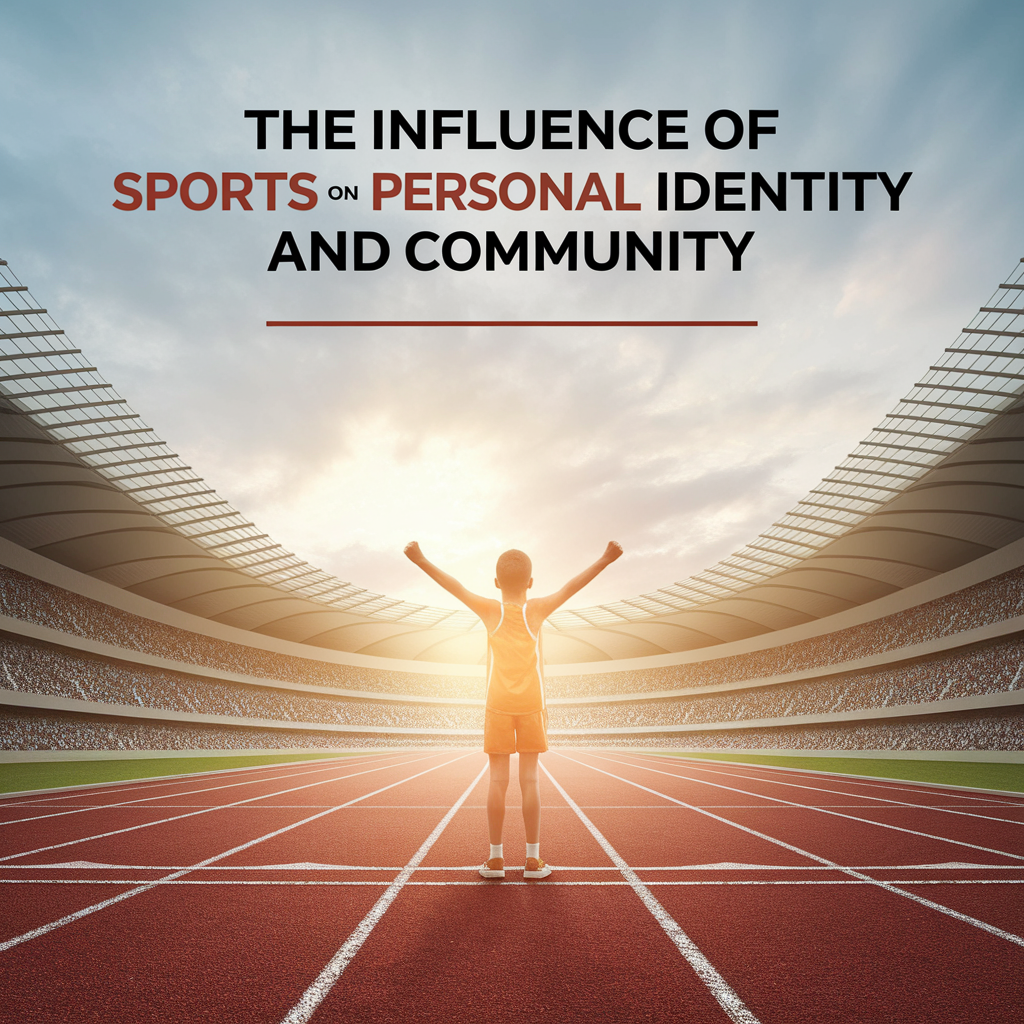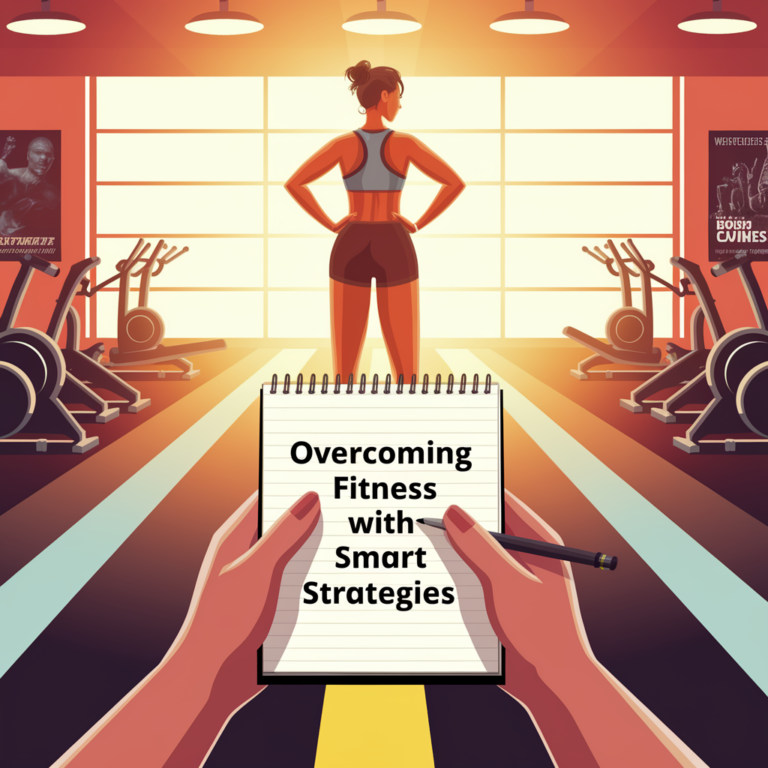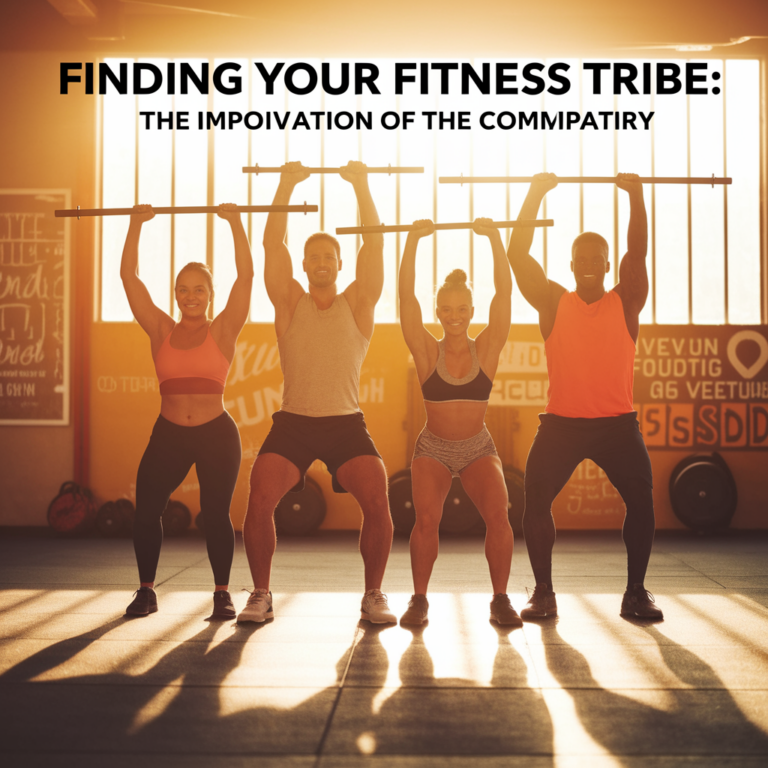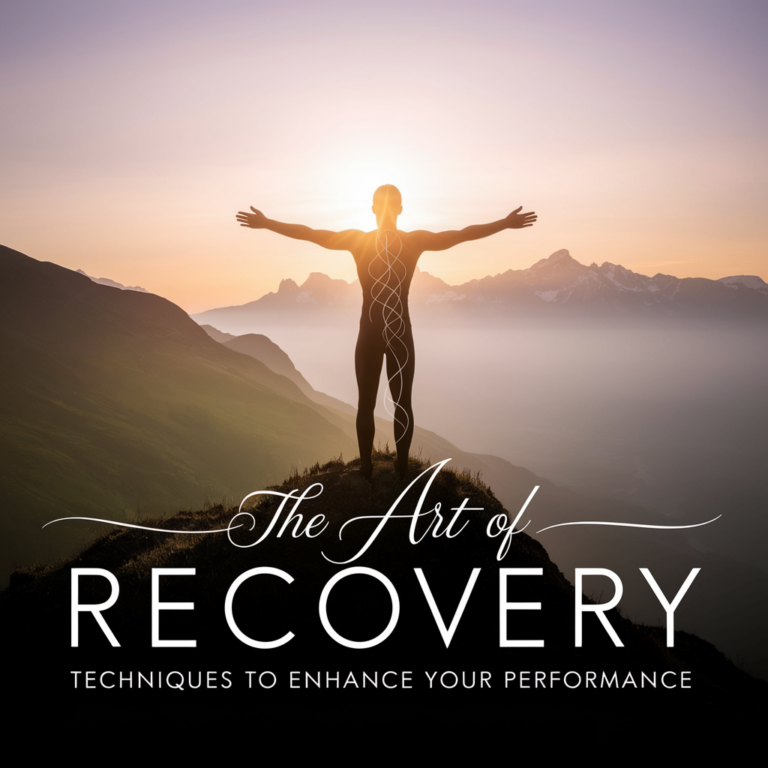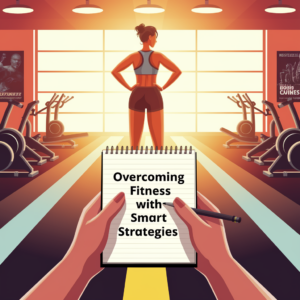The Influence of Sports on Personal Identity and Community
Sports have a way of weaving themselves into the very fabric of our lives. Think about it for a moment: the jerseys we wear, the teams we cheer for, and the stories we tell about our athletic heroes shape not only how we see ourselves but also how we relate to our communities. It’s a fascinating, multifaceted relationship that transcends mere entertainment; it’s about identity, belonging, and sometimes even survival. In this exploration, we’ll delve into how sports impact personal identity and community dynamics, and, I promise, it won’t be all statistics and dry facts—there will be some heart, humor, and maybe even a few surprises along the way.
The Personal Touch: Identity Through Sports
For many, engaging in sports goes beyond the physical act of playing; it becomes a profound aspect of their personal identity. I remember when I first stepped onto the basketball court in middle school, feeling the slightly sticky floor beneath my sneakers and the weight of my oversized jersey. I was nervous, but as I dribbled the ball down the court, I felt a rush of belonging. It was as if I had found a part of myself that had been waiting to be discovered. This sentiment is echoed by countless individuals who find solace, strength, and self-expression in athletic pursuits.
When we talk about personal identity, sports serve as a mirror reflecting our values, aspirations, and sometimes even our insecurities. A study conducted by the American Psychological Association found that individuals who participate in team sports often develop a stronger sense of self-worth and community connection. The camaraderie built on the playing field can boost confidence and foster lifelong friendships. In essence, sports can be a powerful vehicle for self-discovery.
Consider the case of women’s soccer. Over the past few decades, particularly in the U.S., the growth of women’s soccer has not only propelled athletic talent to the forefront but has also empowered young girls to challenge societal norms. When young girls watch players like Alex Morgan or Megan Rapinoe, they’re not just seeing athletes; they’re seeing role models who embody strength, determination, and the ability to break barriers. Their success on the field inspires a new generation to dream bigger and reach higher.
Community Connections: The Bonding Power of Sports
Now, let’s shift gears and focus on the community aspect. Sports have an incredible ability to unite people from different backgrounds, interests, and walks of life. It’s that magical feeling of being part of something bigger than ourselves. Whether it’s gathering around a television for the Super Bowl or cheering in unison at a local high school game, these moments create a shared experience that can foster a sense of belonging, camaraderie, and pride.
Take, for instance, the phenomenon of local sports teams serving as a rallying point for communities. In many small towns, the Friday night high school football game is more than just a game; it’s a social event. Families, friends, and neighbors come together to support their team, creating a vibrant atmosphere filled with laughter, cheers, and even the occasional friendly rivalry. These gatherings can evoke feelings of nostalgia and unity, reminding us of our shared roots and values.
But it’s not just about the game itself. Sports often serve as a catalyst for social change and community development. Many professional athletes leverage their platforms to drive awareness about social issues, engage in philanthropy, and inspire positive action. Think of LeBron James and the I PROMISE School, or Colin Kaepernick’s activism. These athletes are not just playing for victory; they are using their influence to reshape narratives and uplift their communities.
The Role of Sports in Shaping Identity Across Generations
As we consider the relationship between sports and identity, it’s essential to recognize how this influence transcends generations. Families often pass down their love for sports like heirlooms, creating a rich tapestry of shared experiences. I can’t count how many times my parents recounted their days as avid fans of their local baseball team—how they would brave the elements to catch a game or debate the best players over dinner. These stories not only cemented their identity as fans but also became a part of my own identity.
Studies indicate that children who grow up in sports-centered families tend to adopt similar values and interests. This phenomenon can be attributed to the social learning theory, which suggests that children learn behaviors and values by observing their parents and peers. When a child sees their parent passionately cheering for a team, they’re likely to adopt that enthusiasm, creating a bond forged in shared experiences.
Moreover, many sports traditions are steeped in cultural significance. For instance, in many Latino families, soccer is more than just a sport; it’s a way of life. The excitement surrounding major events like the FIFA World Cup can bring families together, fostering a sense of pride in their heritage while reinforcing connections with their community. These traditions shape identity and create lasting legacies that can be passed down through generations.
Identity Crisis: When Sports and Personal Beliefs Collide
Of course, not every experience with sports is positive. There are instances when sports can lead to identity crises, particularly when personal beliefs clash with the prevailing culture of a sport. This is especially evident in cases of athletes who choose to take a stand on social issues. The backlash that some athletes face for speaking out can create a complex web of identity challenges. I remember when NFL player Colin Kaepernick took a knee during the national anthem to protest racial injustice. The waves of support and criticism that followed highlighted how deeply intertwined sports and personal identity can be.
For Kaepernick, the decision to kneel was rooted in his identity as a social activist, yet it also put him at odds with many fans who felt betrayed by his actions. This intersection between sports and personal beliefs can lead to a profound sense of isolation for athletes, as they navigate the dual pressures of performance and advocacy. Yet, it can also galvanize support from those who resonate with their message, reinforcing the idea that identity is not static but rather a dynamic interaction shaped by experiences and choices.
Sports and Mental Health: A Double-Edged Sword
Let’s not forget the impact of sports on mental health, which can further complicate the relationship between personal identity and community. On one hand, participating in sports can provide a sense of purpose and fulfillment, often acting as a therapeutic outlet. I often find solace in hitting the gym after a long day, where the rush of endorphins can work wonders for my mood. Many individuals report similar benefits—an escape from daily stresses and an opportunity to connect with like-minded individuals.
On the flip side, the pressure to perform can lead to anxiety and burnout. Young athletes, in particular, may feel overwhelmed by the expectations placed upon them, which can lead to a crisis of identity. When an athlete’s self-worth becomes tied exclusively to their performance, the stakes can feel insurmountable. A survey conducted by the National Federation of State High School Associations revealed that nearly 50% of high school athletes experience stress and anxiety related to their sport. It’s a sobering reminder that while sports can build identity, they can also fracture it under pressure.
Building Inclusive Communities Through Sports
One of the more hopeful aspects of sports is their potential to build inclusive communities. As society becomes increasingly diverse, sports can serve as a unifying force that bridges gaps between different backgrounds. Programs that promote inclusivity—such as adaptive sports for individuals with disabilities—highlight how sports can provide opportunities for everyone, regardless of their circumstances.
Organizations like Special Olympics and local adaptive sports leagues create spaces where individuals can participate in athletic activities, fostering a sense of belonging and community. These initiatives not only promote physical health but also challenge stereotypes and break down barriers. The joy and pride that comes from participating in sports can uplift individuals and empower communities to embrace diversity.
The Future of Sports and Community Identity
As we look to the future, the influence of sports on personal identity and community will undoubtedly continue to evolve. The rise of digital platforms and social media has changed the way fans engage with sports, allowing for a more global perspective. It’s not uncommon to see fans from opposite sides of the world connecting over a shared love for a team or athlete, creating virtual communities that transcend geographic boundaries.
Moreover, as younger generations become increasingly aware of social issues, we can expect athletes to continue advocating for change. The role of sports as a platform for social commentary will likely grow stronger, challenging both athletes and fans to reflect on their identities and beliefs in a rapidly changing world. This evolution may even lead to a redefinition of what it means to be a fan, as individuals seek to align their values with the teams and athletes they support.
Conclusion: The Unbreakable Bond Between Sports, Identity, and Community
In conclusion, the influence of sports on personal identity and community is a complex and ever-evolving narrative. From the personal growth that comes from athletic participation to the communal bonds forged through shared fandom, sports mirror our humanity in remarkable ways. They challenge us to confront our beliefs, celebrate our differences, and unite in our passions. As both a journalist and an avid sports fan, I’ve witnessed firsthand the magic that happens when people come together through sports—how it can transform lives and shape communities.
So, whether you’re a die-hard fan, a casual observer, or an aspiring athlete, take a moment to appreciate the profound impact that sports can have on our identities and communities. After all, in a world that can sometimes feel divided, there’s something truly special about gathering with others to cheer, celebrate, and share in the thrill of the game.

